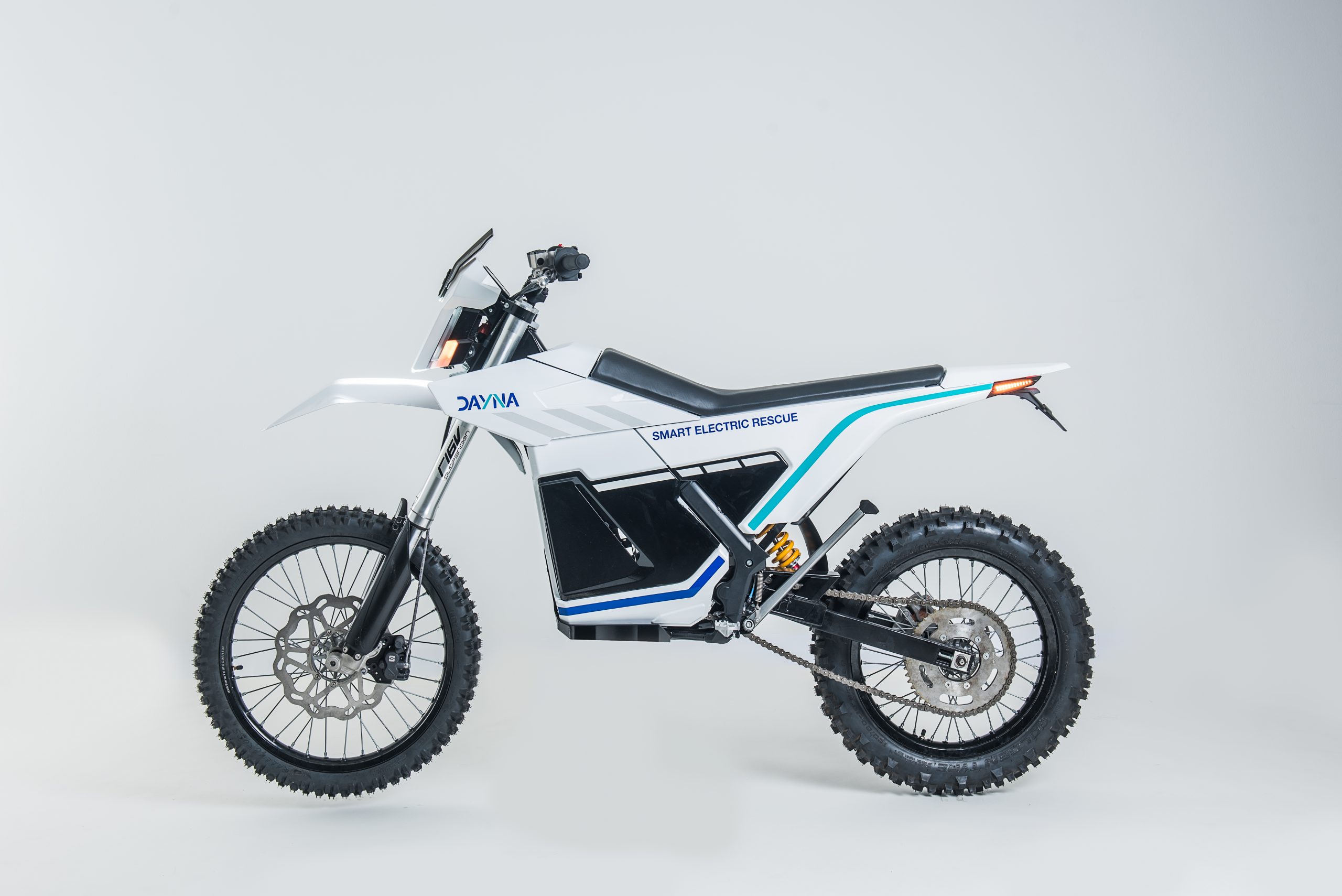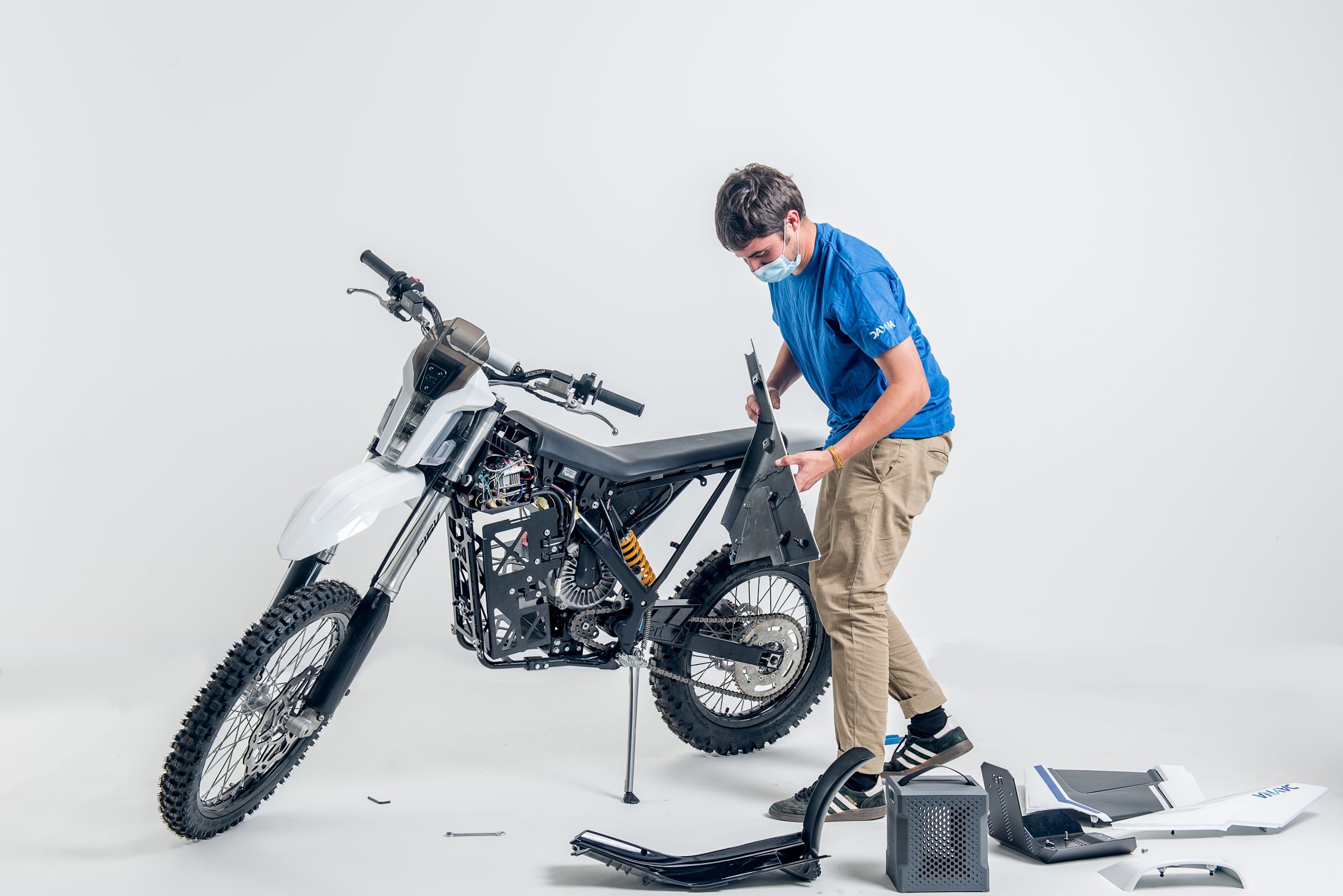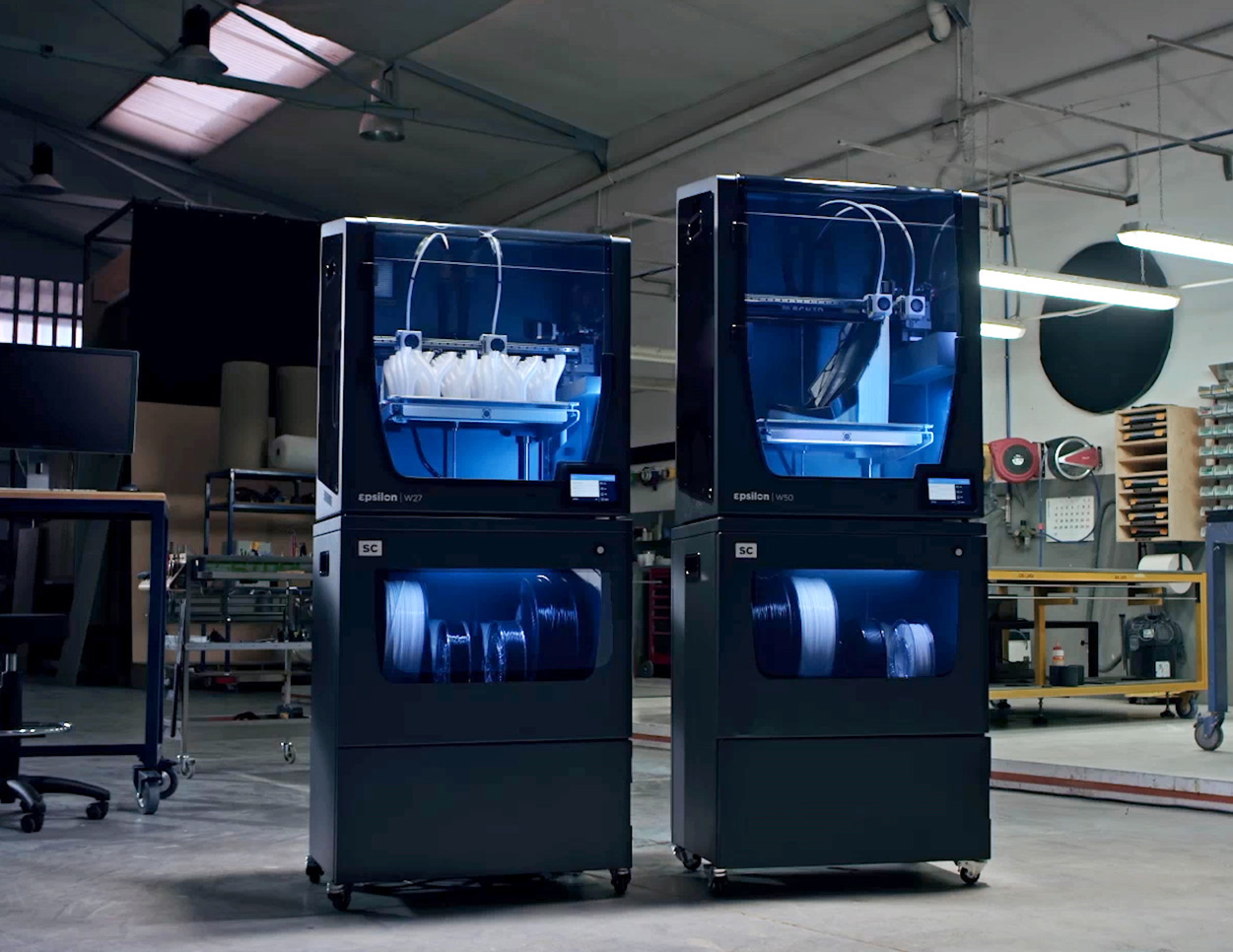Spanish 3D printer manufacturer BCN3D has collaborated with Elisava Racing Team from Barcelona’s University School of Design and Engineering to 3D print end-use parts for its all-electric intelligent mountain rescue motorcycle.
Called DAYNA, the motorbike is specifically designed for mountain rescue operations in hostile environments and features 19 3D printed parts made up of a variety of technical materials.
The Elisava team will put the motorcycle to the test at the Barcelona Smart Moto Challenge, where student engineering teams from around the world compete to develop the best electric motorbike on the market, and will eventually seek to commercialize the product.
“With their knowledge of materials and FFF printing technology, the team at BCN3D helped us to finish defining the shape of the components to facilitate printing, as well as configure the parts to have better quality and reduce supports and problems when printing,” said Jacobo Mateos, Project Manager of the Elisava Racing Team.

Deploying FFF technology
DAYNA is based on an IoT-connected smart system equipped with blind-spot and proximity sensors, Bluetooth, and GPS, in order to reduce response times during emergencies and rescues. If commercially produced, the motorcycle would be able to integrate and analyze information from the GPS tracking devices and combine it with data from rider apps to monitor movement, and also provide for accidents or situations where the rider may need assistance.
The motorbike contains 19 end-use parts 3D printed using Fused Filament Fabrication (FFF) and technical materials. BCN3D advised the Elisava team on the design optimization of the parts in terms of orientation and material suitability.
Components that would come into contact with batteries or electronics were printed with ABS due to its structural and thermal resistance and low static charge, while PA was used for parts where friction resistance was essential. For the most mechanically-demanding components, materials that possessed fiber charge, such as BCN3D’s high-temperature carbon-reinforced polyamide PAHT CF15, were employed. The fender, a component prone to breaking from shocks, was manufactured with BCN3D’s glass-fiber PP GF30 composite filament which is lighter than PAHT but still able to withstand shocks and friction.
According to Mateos, FFF 3D printing was chosen because “It allowed [them] to manufacture plastic parts both in materials with reinforcement and in materials without it, which gave us a freedom when defining the shape of the parts that any other manufacturing process would not have allowed.”
“Thanks to fiber-reinforced materials, in this case, carbon fiber, we were able to implement the pieces we wanted, with the versatility in the shape of the piece that FFF printing allows us to do.”

Bringing in the big guns
For the printing process, the Elisava team used BCN3D’s largest 3D printer, the Epsilon W50, as its build volume was capable of printing large-volume parts such as the motorbike’s fender and fork cover. The printer is powered by BCN3D’s proprietary Independent Dual Extruder Technology (IDEX), which enables the printer’s tool heads to be controlled independently.
Part of BCN3D’s Workbench range of 3D printers, the Epsilon W50 can be equipped with the firm’s Smart Cabinet (SC) which maintains the optimal condition of printing materials in order to improve print quality. The SC will be shipped in Spring 2021 and is aimed at customers wishing to optimize their manufacturing workflow.
The Elisava team also made use of the Epsilon’s Mirror Mode to simultaneously print mirrored designs symmetrically in order to save time. After printing, the parts were sanded down to give a smooth finish.
“During the development process, it allowed us to iterate quickly, creating pieces that allowed us to evaluate their shape, finish, and functionality, regardless of what material or manufacturing process was used in the final part,” added Mateos.
The Elisava team is planning to return to the Barcelona Smart Moto Challenge with the DAYNA in the hope of gathering recognition for their efforts and potentially achieving the end goal of commercializing the motorcycle. In the meantime, the team will continue to work on the R&D elements of the motorcycle in terms of leveraging smart capabilities and rescue functionality.

BNC3D’s expanding 3D printing portfolio
Initially founded in 2012 by a research group at the Polytechnic University of Catalonia’s (UPC) additive manufacturing division, the CIM-UPC center, BCN3D became an independent company in 2019 and has since continued to develop its IDEX 3D printing technology.
The firm’s FFF 3D printer portfolio is so far made up of its Sigma line of systems, the R17, R19, Sigmax, and latest addition, the Sigma D25, in addition to its Workbench range consisting of the Epsilon W50 and W27, which is equipped with a smaller build volume and designed to appeal to customers that manufacture in smaller production runs. The company has worked with global chemical firms BASF and Mitsubishi Chemical to introduce new filaments for its Epsilon machines.
After spinning off from the CIM-UPC, BCN3D raised €3 million in seed funding and later amassed a further €2.8 million in investment in order to advance its additive manufacturing process and create a new range of 3D printing materials. The company has also entered into multiple partnerships to expand the reach of its technology, having collaborated with the Istituto Europeo de Design (IED) to install several of its 3D printers for students to use for prototype manufacturing and projects, as well as teaming up with Istanbul-based 3D printer reseller 3Dörtgen to expand its global reach.
Elsewhere, BCN3D has announced distribution agreements for its 3D printers with Italian distributor CREA3D, and made service provider 3DGBIRE the exclusive distributor of its machines in Britain and Ireland.
Subscribe to the 3D Printing Industry newsletter for the latest news in additive manufacturing. You can also stay connected by following us on Twitter and liking us on Facebook.
Be sure to subscribe to the Another Dimension podcast on your chosen podcast player to make sure you never miss an episode.
Looking for a career in additive manufacturing? Visit 3D Printing Jobs for a selection of roles in the industry.
Featured image shows the DAYNA all-electric, intelligent mountain rescue motorcycle. Image via BNC3D.


